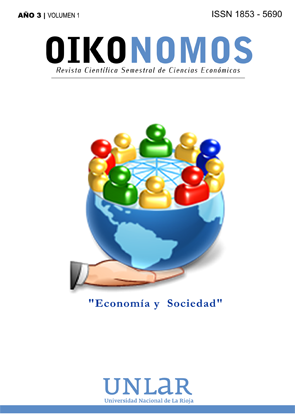El procedimiento de determinación de oficio sobre base presunta: análisis doctrinario y jurisprudencial sobre la aplicación de las presunciones.
Keywords:
Determinación de Oficio, Determinación de Oficio sobre Base Presunta, Presunciones, IndiciosAbstract
La ley de Procedimiento Tributario 11.683 (de ahora en más LPF) delegó en el sujeto pasivo del tributo la obligación de determinar el monto del mismo (“Autodeterminación”), que únicamente podrá ser reemplazado en esta función determinativa en los casos especialmente previstos. Por ello el Art. 16 de la LPF, establece el momento en que el fisco está facultado para poner en funcionamiento el procedimiento de determinación de oficio, para corregir –en los casos que corresponda– la materia imponible declarada espontáneamente por el contribuyente, o determinarla cuando este no haya presentado la correspondiente declaración jurada.El órgano fiscal puede recurrir a la determinación de oficio sobre base cierta cuando puede calcular con exactitud la magnitud de la obligación tributaria; o en forma subsidiaria, excepcional y debidamente fundada, a la determinación sobre base presunta cuando el contribuyente o responsable no llevare registraciones contables o no pudiera acceder a las mismas, o estas no reflejaran la realidad económica del contribuyente.En este último caso se recurre a la utilización de presunciones para reconstruir la materia imponible omitida, de modo tal que dichas presunciones tengan el poder de sustituir la materia declarada por el contribuyente.Las presunciones permiten suponer hechos desconocidos para el organismo de contralor partiendo de hechos conocidos, los que están íntimamente ligados a aquéllos. El Art. 18 de la LPF faculta el uso de las presunciones, conteniendo un detalle de las mismas.La aplicación indiscriminada que hace, en algunos casos, el fisco de ésta herramienta ha llevado a la aplicación de límites por parte de los órganos judiciales que deberían ser tenidos en cuenta para producir una modificación y mejoramiento de las normas mencionadas anteriormente.El objetivo del presente trabajo es abordar el tratamiento de la jurisprudencia y doctrina aplicados en las determinaciones de oficio sobre base presunta.AbstractTax Procedure Law N° 11.683 (from now on LPF) delegated to the taxpayer the required to determine the amount of the tax ("Self-Determination"), which may only be replaced in this function determinative in cases specially provided.Thus Article 16 of the LPF, sets the time when the Treasury is authorized to operate the official assessment procedure, to correct, in appropriate cases, the taxable income declared by the taxpayer spontaneously, or determine when this did not submit the appropriate affidavit.The tax authority can use the certain basis determination when it can accurately estimate the magnitude of the tax liability, or in the alternative, exceptional and duly substantiated, the alleged basis determination when the taxpayer or responsible shall not keep accounting records or could not access them, or do not reflect the economic reality of the taxpayer.In the latter case it resorts to the use of presumptions to rebuild the taxable omitted, so that these assumptions have the power to replace the material declared by the taxpayer.Assumptions can be assumed facts unknown to the agency comptroller based on facts, which are closely linked to those. The Article 18 of the LPF authorizes the use of presumptions, containing a detail of the same.The indiscriminate application does, in some cases, the treasury of this tool has led to the application of limits by the courts that should be taken into account to produce a modification and improvement of the standards mentioned above.The aim of this paper is to address the treatment of jurisprudence and doctrine applied in the determination of trade on presumptive basis.Key Words: Tax Determination ; Alleged basis determination ; Assumptions ; EvidenceDownloads
Published
2016-05-03
Issue
Section
Artículos

